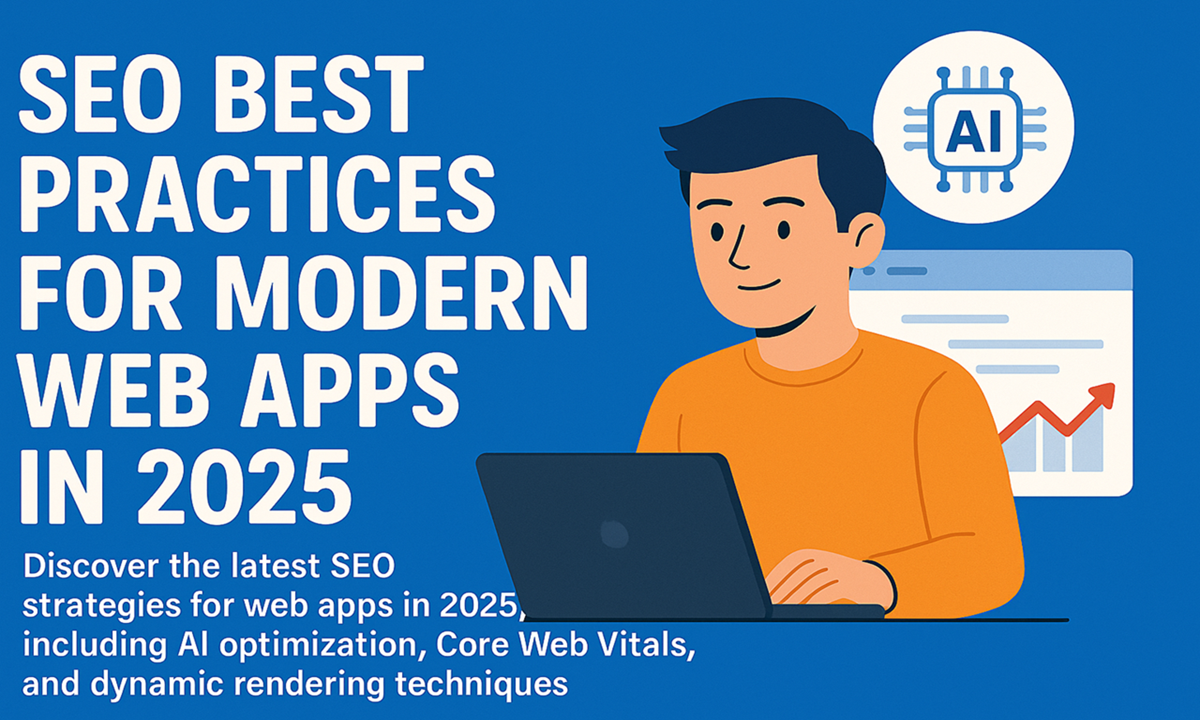The Evolving Landscape of Web App SEO
As we move deeper into 2025, SEO for web applications has become more complex and nuanced. Traditional website optimization strategies no longer suffice for dynamic, JavaScript-heavy applications. With Google's algorithm increasingly favoring user experience, performance, and AI-driven content relevance, developers need to adopt new approaches to ensure visibility.
1. Master JavaScript SEO for Single-Page Applications
Modern web apps built with React, Angular, or Vue require special attention:
Dynamic Rendering Solutions
Implement hybrid rendering to serve crawlers:
// Next.js example
export async function getServerSideProps(context) {
// Server-side render for bots
if (context.req.headers['user-agent'].includes('Googlebot')) {
return { props: { serverRendered: true } };
}
return { props: { serverRendered: false } };
}
Client-Side Navigation Optimization
- Use the History API properly for state changes
- Implement
rel="canonical"dynamically - Lazy-load non-critical JavaScript
2. AI-Optimized Content for Semantic Search
With Google's Gemini AI influencing rankings:
Structured Data 2.0
Go beyond basic schema markup:
{
"@context": "https://schema.org",
"@type": "WebApplication",
"aiTrainingData": {
"trainingAlgorithm": "Gemini-2.5",
"compatibilityScore": 0.92
}
}
Natural Language Processing (NLP) Best Practices
- Cluster content by semantic topics
- Use question-answer formatting
- Optimize for conversational queries
3. Core Web Vitals 2025 Standards
Google's updated performance metrics:
| Metric | 2025 Target | Measurement |
|---|---|---|
| LCP (Largest Contentful Paint) | <1.2s | First viewport image/video |
| INP (Interaction to Next Paint) | <200ms | All user interactions |
| CLS (Cumulative Layout Shift) | <0.05 | All page loads |
4. Progressive Enhancement for Search Crawlers
Ensure accessibility across all crawling methods:
Three-Phase Rendering Strategy
- Static HTML shell for instant crawlability
- Progressive hydration of components
- Full interactivity after main thread availability
Web Component SEO
For custom elements:
<script type="module">
class MyComponent extends HTMLElement {
connectedCallback() {
this.innerHTML = `<h2>SEO-Friendly Content</h2>`;
}
}
customElements.define('my-component', MyComponent);
</script>
5. Privacy-Focused Analytics for SEO Insights
With third-party cookie deprecation:
- Implement server-side analytics
- Use Google's Privacy Sandbox APIs
- Leverage first-party data clusters
6. Visual Search Optimization
For Google Lens and visual discovery:
- SVG with semantic titles and descriptions
- 3D/AR content with WebGL metadata
- Video chapters with text transcripts
Conclusion: Future-Proof Your Web App SEO
The 2025 SEO landscape demands a holistic approach combining technical excellence, AI compatibility, and exceptional user experiences. By implementing these strategies, your web app can maintain visibility in an increasingly competitive digital ecosystem.
Next Steps: Conduct an SEO audit focusing on these areas and monitor changes through Google Search Console's 2025 features.
